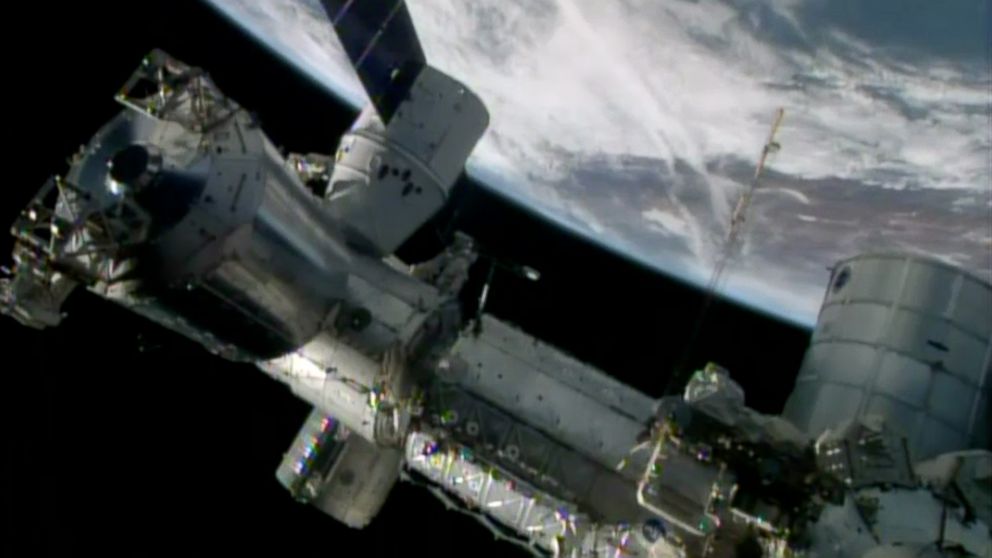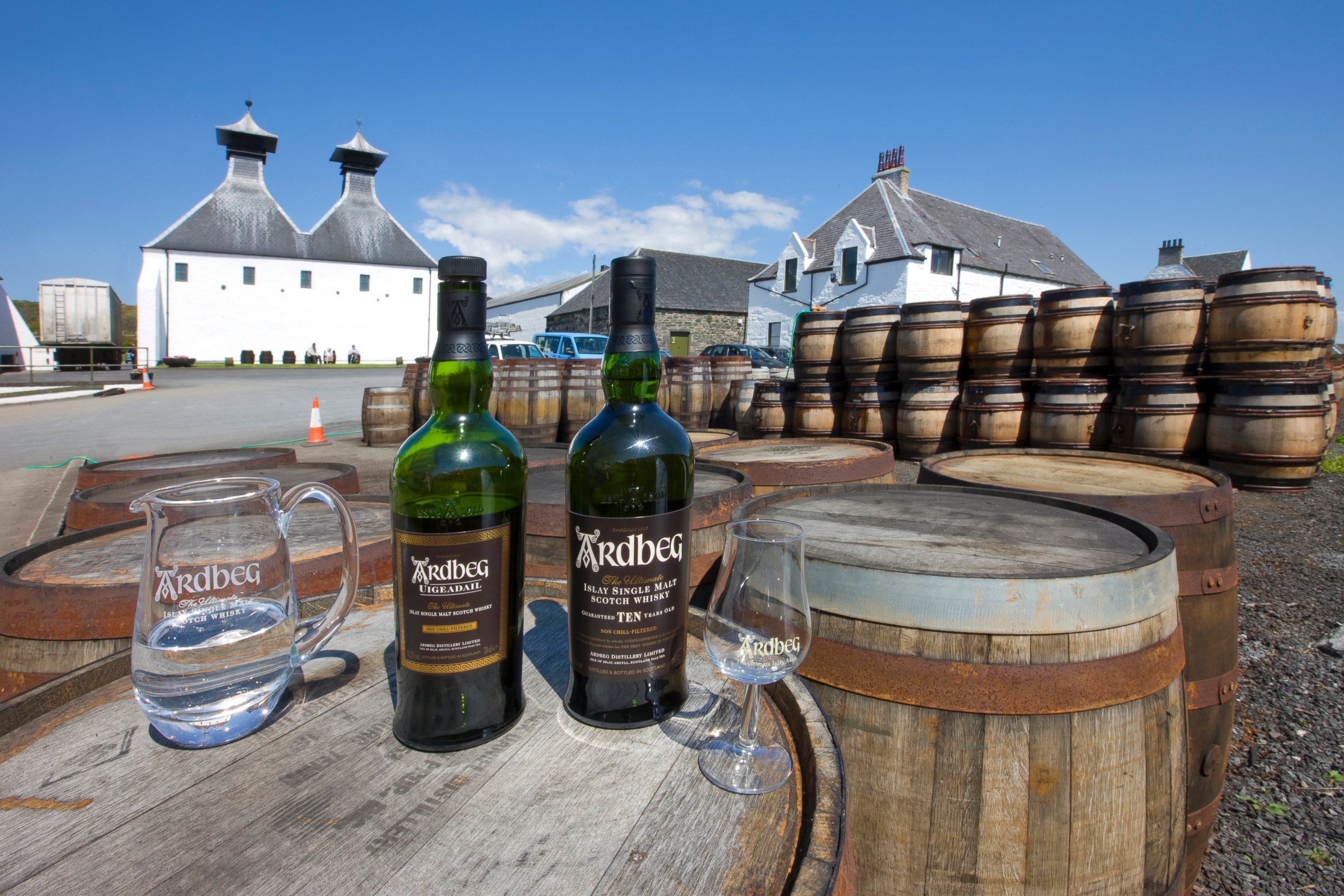Whiskey Particles Stored on International Space Station Headed for Earth
Launched into space in 2011 to test gravity's effect on liquor.

— -- A Scottish distillery that enlisted the help of astronauts to develop whiskey particles on the International Space Station is now preparing for touchdown.
Ardbeg, a whiskey distillery in Scotland, partnered with a Houston-based space research company to launch some micro-compounds of their liquor into outer space in 2011.
According to the distillery's website, 20 vials of the unmatured whiskey particles were sent along with pieces of charred oak that they were treated with when they arrived at the International Space Station. The vials only contained microbes that will later be used to brew whiskey, rather than the liquor itself.

"This is indeed a research program to help us understand terpenes, which are the building blocks for flavorings, paints and yes, whiskey -- so to us, this is a very solid research project for a consumer-based company," Jeffrey Manber, the CEO of Houston-based company NanoRocks, told ABC News. "NASA approved the project since terpenes have never been grown in zero-gravity conditions."
If a difference is noted between the vials kept in zero gravity as compared to those in "control" vials in Scotland, the implications could lead well out of the liquor cabinet.
"The absence of gravity may well create a new generation of consumer products and help us understand materials, biologicals and products that are right here on Earth," Manber said.
Once the out-of-this-world particles return to Earth -- they are expected to land in Kazakhstan on Sept. 12 -- the vials will be shipped to Texas, where they will be compared to similar vials made in Scotland in 2011 to test what effect gravity had on the maturation process.




